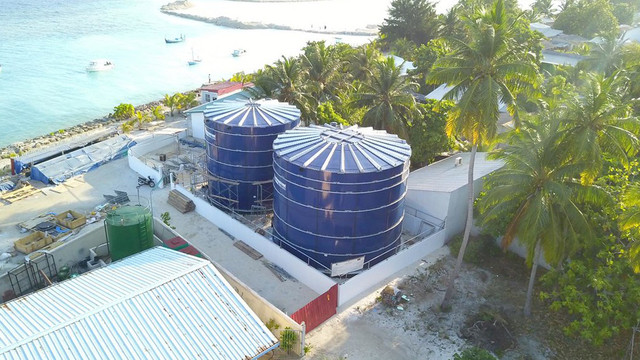How do European policies impact developing countries? We want to hear from you
IIED Europe’s horizon scanning project is calling for a role reversal. We’re asking developing countries for their environment and development research priorities to guide and inform the work of European think tanks and research institutes.


A farmer releases water from a pump on his field in a Nepal village. IIED Europe is looking to untap the research priorities of developing countries to inform the work of European think tanks and research institutes (Photo: ICIMOD/Chetan Soni, via Flickr, CC BY-NC 2.0)
When it comes to the environment and development, European policy too often overlooks global South perspectives.
Take for example, the Carbon Border Adjustment Mechanism (CBAM). This mechanism was created in July of last year as part of the European Green Deal to prevent the risk of carbon leakage, and to support the European Union's (EU) increased ambition on climate mitigation.
Its intention is virtuous – to prevent private companies moving abroad the carbon emissions generated by their products, to escape more stringent carbon regulations in Europe.
But its impact on developing countries is still little understood, especially for countries that have based their development trajectory on the production and export of goods to European countries.
Then there’s the re-localisation, or ‘reshoring’, of several critical supply chains that were previously globalised, as a response to the COVID-19 pandemic.
Many developing countries have based their development models on the export of goods for the globalised supply chain. If this reshoring trend were to make its way into formal policymaking processes the impact on these developing countries could be very high.
IIED Europe keeps pace with environment and development policies coming out of the EU and examines the impact of these policies on developing countries.
How can European policies maximise benefits for developing countries? And minimise negative impacts?
Through a new global horizon scanning project we are reaching out to experts and citizens from least developed countries, small island and developing states, middle-income countries and emerging economies. We want to identify research priorities to help understand how Europe and its policies, institutions, enterprises and banks, countries and citizens can affect, influence and impact environmental and socio-economic development in their countries.
To capture points of view from a broad range of stakeholders – from elected policymakers to academics, private companies to social enterprises − we have set up an online survey. Contributors are invited to send their recommendations on what they see as the most important topics for research and investigation.
Challenging protocols
While there have been various exercises over the years to explore how different policies impact environment and development, we believe this survey could be a game changer. We’re challenging the convention whereby European think tanks and research institutes prescribe the priorities of developing countries and carry out their research accordingly.
Instead, we’re asking developing countries to define and design the research that will inform policies, and tell us what we need to do to minimise the negative impact and maximise the benefits of policies coming out of Europe. We’re turning the process on its head and putting developing countries at its centre. To our knowledge this is the first time this kind of exercise has been carried out, with this scope and on this scale.
Your research priorities please
Research questions can cover any aspect of how European policies are impacting environmental and socio-economic development in developing countries – good and bad. Priority areas may range from the influence and impact of the green transition to defence and security; from energy and fossil fuel sourcing to current and planned trade agreements; or from waste management to air pollution.
Survey respondents can also put forward issues for which there are no current policies – but that they think will or should be included in future policies.
The survey will be open until 30 May. You can also send your suggestions for priority topics to director@iied-europe.org and we will respond to comments or answer any questions.
Responses will be collected, clustered and ranked in order of priority. The outcomes of the ranking will be published in a peer-reviewed, open-access report and shared widely with environment and development organisations, with policymakers and decision makers, with NGOs and advocacy organisations, and with communities and individuals from the wider public across the global South and North.
By making the report open access and available to everyone we hope that others will use it to inform their own research.
We plan to repeat this process every two years, making it an ongoing process where research objectives and priorities, informed by developing countries, are updated regularly.
We invite all stakeholders from the global South to bring their experience, expertise and fresh thinking to inform this new and exciting process.
- This survey closed in early June 2022



